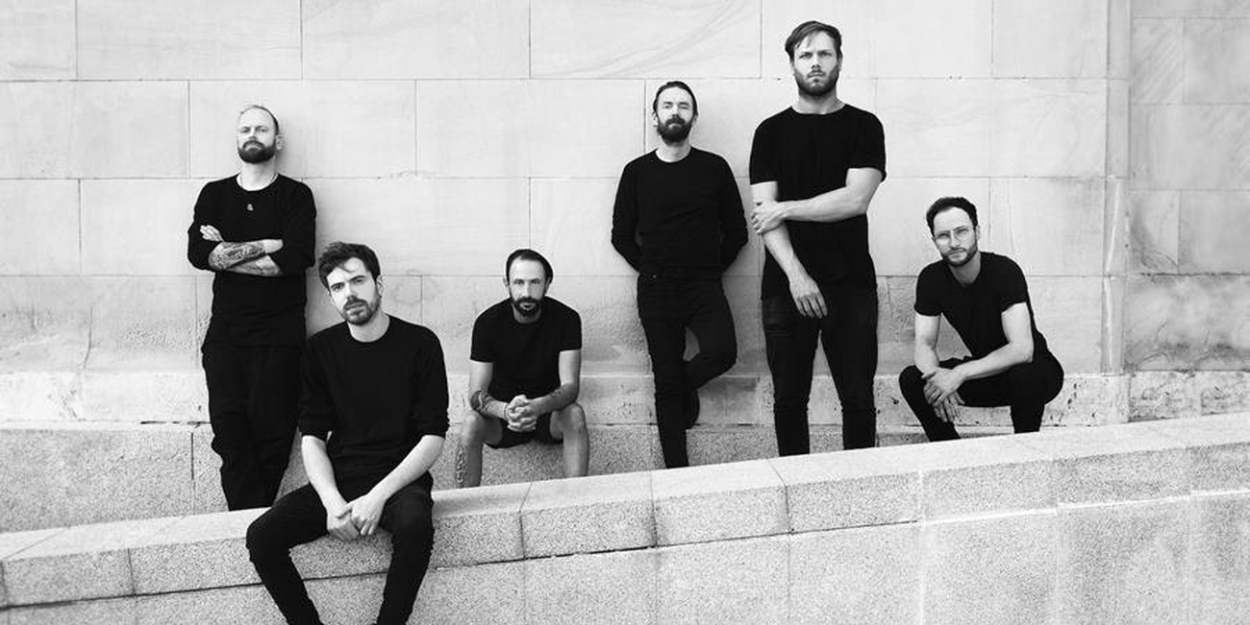The Ocean Announce New Album 'Holocene'
The long-standing collective’s tenth album will be out on May 19th.

Berlin-based atmospheric post metal juggernaut The Ocean (Collective) returns with the follow-up to their critically acclaimed Phanerozoic double album: Holocene. This new album sees The Ocean add a closing chapter to their paleontology-inspired album series, presenting a gear shift towards the electronic world while reaching new depths of heaviness at the same time.
Today, the group has premiered a music video for the album's second single, "Parabiosis." Filmed on tour in the U.S., Canada and Puerto Rico, the video shows the artificially-aged band members sign up for an "eternal youth" program and shows them aging in reverse. The track itself is "about stem cell research and the cosmetics industry's war against aging and our society's quest for rejuvenation elixirs, plastic surgery etc, which leads to the question of- how far can and shall we go regarding bio-engineering and medicinal progress?" the band comments.
They continue, "The cult of eternal youth has lead to death being hidden from our everyday lives. You literally see no old people in our modern inner cities anymore, everyone is young and healthy and the sick and dying are locked away in clinics and retirement homes where they won't remind the general public of the fact that we are all going to die one day, which keeps us stuck on a hamster wheel of spending the time of our lives working jobs we hate to afford things we don't need..."
Enter the Holocene-the latest and thus-far shortest epoch on the geological time scale in which humanity appeared on the planet. Through rapid proliferation and technological progress, our species has shaped and changed our planet in ways unprecedented in history. Moving into the human age, The Ocean have become more intimate and captivating musically, while creeping deeper into their own DNA with numerous references to their earlier discography which older fans will cherish.
The Ocean's Robin Staps explains the writing process behind Holocene:
"The writing process of every album we've ever made started with me coming up with a guitar riff, a drumbeat or a vocal idea. This album is different since every single song is based on a musical idea that was originally written by Peter (Voigtmann, synths). He came up with these amazing synth parts that were already sounding huge in pre-production, and he sent me some of those raw, unfinished ideas during mid lockdown 2020... and while it was all electronic, it had that definite Ocean vibe to it. It made me want to pick up my guitar instantly... and so I did, and it didn't take long until we had an inspiring creative exchange that was heading towards totally unforeseen but very exciting places."
In many ways Holocene is a departure as much as it is a return to the band's roots. It is only logical that the album was recorded entirely by the band themselves at Voigtmann's studio Die Mühle in the rural North of Germany and at the band's own Oceanland 2.0 studio in Berlin. This approach also led to the desire for a different approach towards mixing the album.
"While we still think that Jens Bogren's mixes of our previous 3 albums sound great, we wanted a more organic sound this time around," says Staps. "So we set out on a mission to get test mixes done by a number of people, from close friends to some pretty big names, but none of them came close to how we wanted this record to sound, and after a few months we got really frustrated."
This is when Swedish producer and long time ally Karl Daniel Lidén came around as the delivering angel, with a test mix that convinced the band to hire him for mix and mastering. Lidén's mix brings an unprecedented clarity to the sound of the band, with a huge, ambient drum sound contrasting the electronics, and a warm and fat but somewhat brittle guitar tone that suits the diverse string work on the album incredibly well and merges with the tone of the brass into orchestral grandeur.
Across their vast discography The Ocean have been on a continuous crusade against close-mindedness, ignorance and intellectual obstinacy, from the distinct anti-Christian sentiment of their -centric records through the psychological, Tarkovsky-inspired contemplations on Pelagial to exploring Nietzsche's ideas of amor fati and Eternal Recurrence on the Phanerozoic albums.
On Holocene, The Ocean continue their strife, tackling subjects like the morbid grand-scheme social quest for eternal youth ("Parabiosis") or how our current day's instagram-society is epitomizing Guy Debord's visionary socio-economical analysis in the "Society of the Spectacle" ("Preboreal").
The booklet of the album is indeed peppered with quotes by Debord and Raoul Vaneigem. Debord was a founding member of The Situationist Internationale, a French protest movement made up of avant-garde artists and political theorists that sought to create 'situations'-moments in which the monotony of everyday capitalist routine was disrupted without having to buy commodities. They wanted to encourage people to find moments of truth and real experience among the all-pervasive consumerist lie.
"Holocene is an appendix to the two Phanerozoic albums and Precambrian, or the final and concluding chapter, making it a quadrilogy if you want so", the band comments. "It's tackling the Holocene epoch, which is the current and shortest chapter in earth's history, but it is essentially an album about the angst, alienation, loss of reason and critical thinking, rise of conspiracy theories and deconstruction of values in the modern age."
Photo Credit: Jaqueline Vanek.
Comments

Videos

